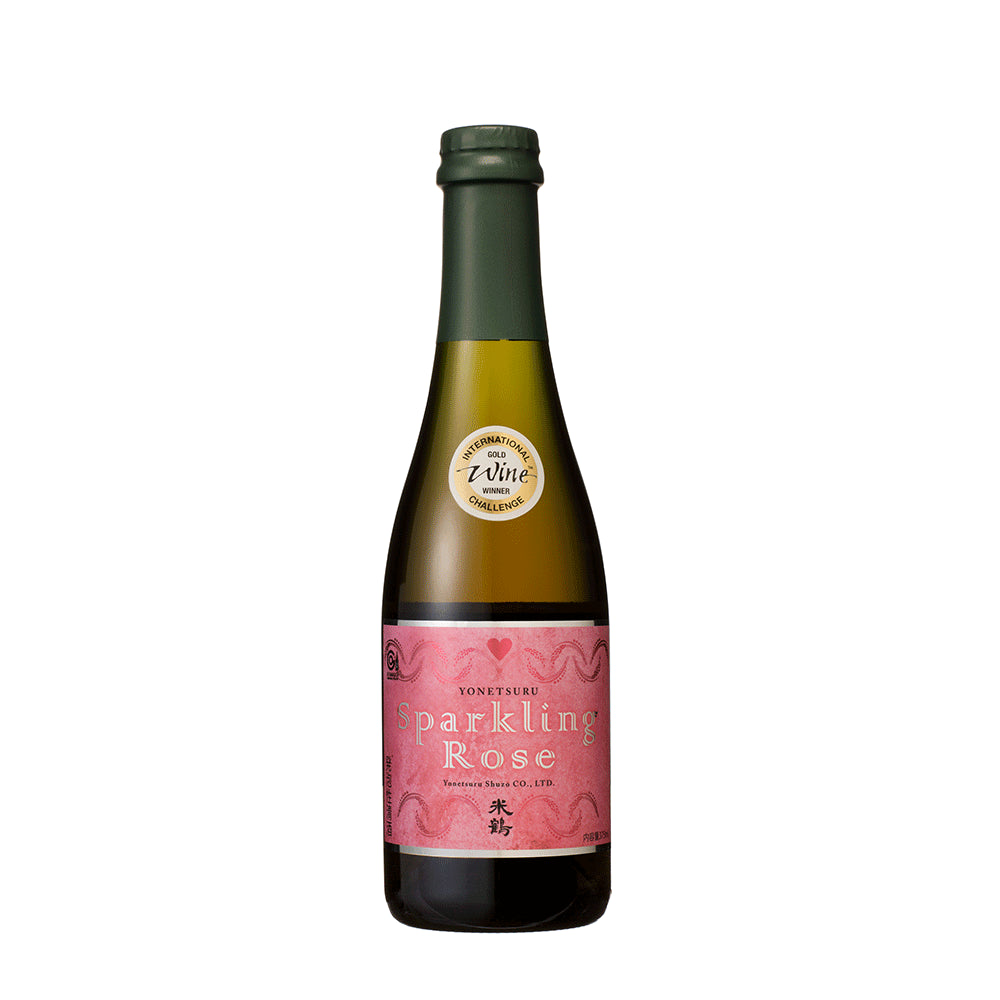-
 >
>
- Product list >
- Yonetsuru Sparkling Rose (375ml)
Yonetsuru Sparkling Rose (375ml)
詳しく見る
- *All prices shown are the product prices from the Japanpage:.
- *Product price can be shown in multiple currencies as reference values.
- *Payment should be made in Japanese yen.
- *After filling in delivery address, grand total (product price + shipping cost (packing + shipping + insurance) +tariffs & taxes) will be shown on the shipping cart page.
- *All prices shown are the product prices from the Japanpage:.
- *Product price can be shown in multiple currencies as reference values.
- *Payment should be made in Japanese yen.
- *After filling in delivery address, grand total (product price + shipping cost (packing + shipping + insurance) +tariffs & taxes) will be shown on the shipping cart page.
Awards
International Wine Challenge (IWC)2018 Sparkling Division Gold, Regional trophy
The Fine Sake Awards Japan2018 Sparkling SAKE Division Gold
The Fine Sake Awards Japan2017 Sparkling SAKE Division Gold
"Yonetsuru Sparkling Rose” is a rosé-type effervescent sake made only with rice and rice koji, without sugar, acidity regulators, or brewed alcohol. As some degree of alcohol must be removed from effervescent liquors while maintaining flavor, we took care with the control of the unrefined sake even more so than with Daiinjo. This sake is made with time and attention, with the brew master personally confirming pressure by taste of the sake during carbonic acid gas injection, and with low-temperature management and bottling performed by hand. A clear pink sake fermented by red yeast and featuring a sweet tartness, it is a fun new type of sake clearly distinct from traditional Japanese sake. The sake is a gold medal winner in the sparkling category of the SAKE division of International Wine Challenge (IWC)2018, the world's most influential wine exhibition, and offers an authentic taste backed by skill. Its mini bottle size is easily finished, perfect for casual sampling.
Pairing food proposed from Vendor
Vinegared oysters, shabushabu, yakitori, pizza, marinated scallops, fried oysters, Chinese crab omelet, meatballs in sweet vinegar sauce, fried gyoza dumplings
About "Yonetsuru"
The name "Yonetsuru" is derived from the bowing posture of ears of rice and the locally told tale "Crane's Return of a Favor." It incorporates a wish to create a sake that conveys a sense of gratitude and is imbued with sincerity. Under the concept of brewing that starts with rice-growing, this Japanese sake uses locally produced rice to offer a refreshing balance of scent, taste, and sharpness.
Recommended temperature
- Atsukan (50 - 55℃)
- Jokan (45 - 50℃)
- Nurukan (30 - 40℃)
- Room temperature (15 - 20℃)
- Hanabie (10℃)
- Yukibie (5℃)
Type


Tag
Appearance
-
Clarity
Transparency
Hazy
-
Colour
Colorless
Dark brown
-
Intensity
Water
Deep
Nose characteristics
-
Intensity
Low
Strong
Taste characteristics
-
Light / Body
Light
Body
-
Sweet / Dry
Sweet
Dry
-
Simple / Complexity
Simple
Complexity
-
Acidity
Low
High
-
Umami
Low
High
-
Finish
Low finish
Long finish
Aroma and flavor
Detailed information
| Volume | 375ml |
|---|---|
| Size (L W H) | 7.0 x 7.0 x 24.5 cm |
| Weight | 0.9kg |
| Ingredients | Rice, Rice koji, Water |
| Region | Yamagata |
| Alcohol content | 9%vol. |
|
Sake Meter Value
|
-36 |
|
Acid level
|
+3 |
|
Polishing ratio
|
65% |








